Publications
Articles, publications, books, tools and multimedia features from the U.S. Institute of Peace provide the latest news, analysis, research findings, practitioner guides and reports, all related to the conflict zones and issues that are at the center of the Institute’s work to prevent and reduce violent conflict.
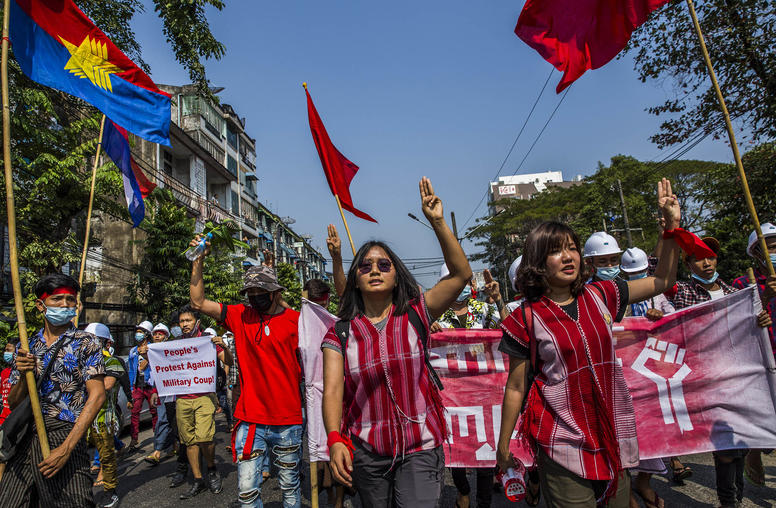
Two Years of Myanmar’s Junta: Regional Instability, Surging Organized Crime
Two years ago today, Myanmar’s military snuffed out the country’s democratic government in a coup and set about restoring the grim dictatorship that dominated the Southeast Asian nation for 50 years. But the generals’ initial moves — jailing civilian leaders, shutting the free press, issuing heavy-handed decrees — were the only things that went according to plan. To date, the coup has instead triggered myriad unintended effects. None are more urgent and consequential than the instability and crime that the generals’ power grab triggered across Southeast Asia, and none more directly implicate U.S. interests in the region.

For Israelis and Palestinians, a Tragic Spiral Reemerges
Since late last week, violence between Israelis and Palestinians has rapidly escalated in the West Bank and around Jerusalem, and January has proven to be one of the most violent months in the West Bank in decades. Attacks continue, exacerbated by bitter publics, frenzied politics and fragile institutions in the West Bank. The Israeli-Palestinian conflict may be in a spiral toward a third intifada and even the possible end of the two-state paradigm.
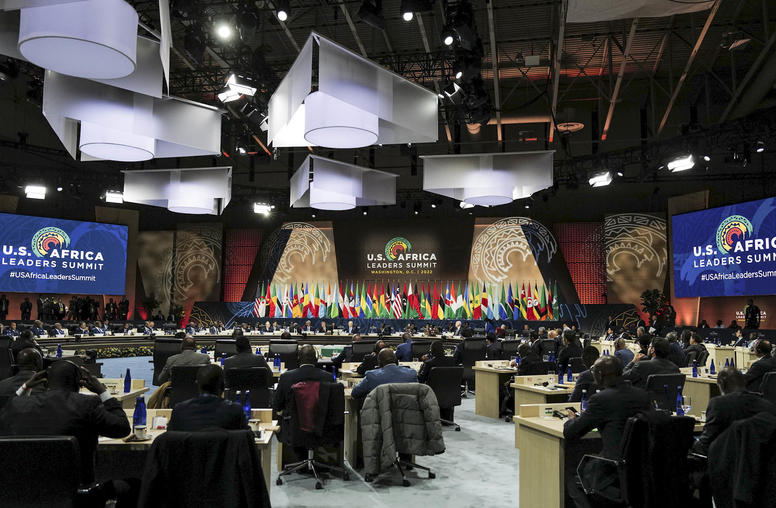
Four Takeaways from Treasury Secretary Yellen’s Trip to Africa
Treasury Secretary Janet L. Yellen’s recent 10-day trip to Africa kicks off a year of sustained, high-level U.S. engagement, aimed at demonstrating that the Biden administration is “all in on Africa, and all in with Africa” following December’s U.S.-Africa Leaders Summit. With trips from the president, vice president, and other cabinet secretaries in the works, this “super-charged” U.S. diplomacy is moving beyond the typical secretary of state visits. A close look at some of the issues encountered by Yellen on her trip demonstrates that showing up on the continent may be the easy part of going all in with Africa.
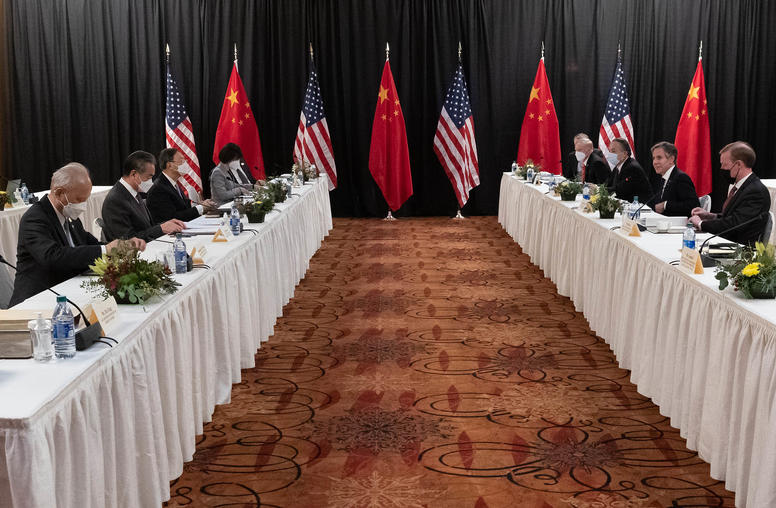
Can Blinken’s Beijing Visit Help Build Bilateral Trust?
U.S. Secretary of State Antony Blinken’s planned visit to Beijing next week is unlikely to see breakthroughs in the tense U.S.-China relations. However, his visit — the first to China by a U.S. secretary of state since Mike Pompeo’s in 2018 — provides an important opportunity for him to take up a range of issues with Chinese Foreign Minister Qin Gang and China’s top diplomat, Wang Yi. There is no doubt that the bilateral relationship is severely strained, but Blinken’s visit is an important follow up to the meeting between President Joe Biden and General Secretary Xi Jinping on the sidelines of November’s G-20 in Bali and a sign that both sides see the need to stabilize ties.
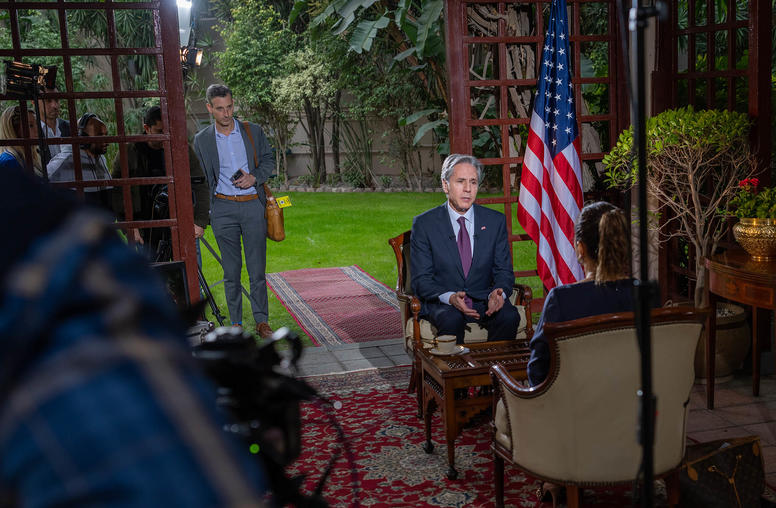
Takeaways from Blinken’s Trip to the Middle East
The Middle East has not been a high priority for the Biden administration thus far, with issues such as Russia’s war in Ukraine and escalating tensions with China taking precedence. However, recent developments in the region are catching the administration’s attention, and Secretary of State Antony Blinken’s visit to Egypt, Israel and the West Bank earlier this week sought to reaffirm U.S. engagement in the Middle East amid political turnover in Israel, spiraling violence in the Israeli-Palestinian arena, stepped-up Iran-Israel tensions and a deepening economic crisis in Egypt.
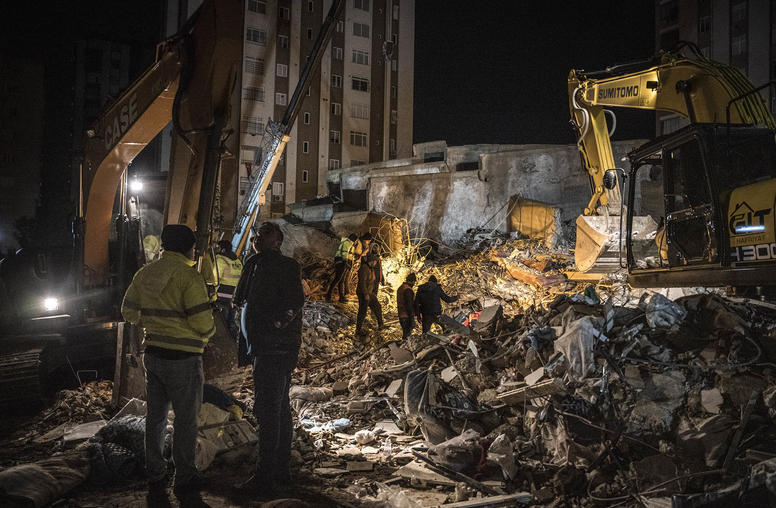
Enormous Earthquakes Exacerbate Syria’s Humanitarian Crisis
A powerful earthquake, registering 7.8 on the Richter scale, struck Türkiye and Syria early Monday morning, with a 7.5 magnitude tremor and other aftershocks felt by countries around the region. Initial figures suggest that in Türkiye as many as 2,921 were killed and 13,293 injured, with 5,600 buildings collapsed. All told, the death toll in Türkiye and Syria stands at 4,300 but is likely to continue to rise. The epicenter of the quake was Türkiye’s southern city of Gaziantep, home to nearly half a million Syrian refugees forced from their homeland amid Syria’s devastating civil war. While the international community mobilized quickly to pledge assistance, aid delivery to Syria — already dealing with massive humanitarian challenges in both rebel- and regime-held areas — will be particularly complicated given the country’s ongoing conflict.
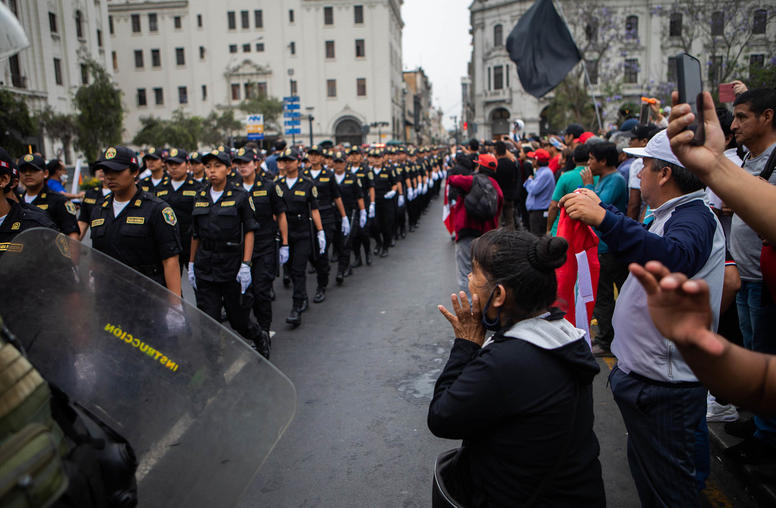
Rage and Repression in Peru: Restoring Citizen Trust and Public Order
Peruvian national governments have lurched from crisis to crisis in recent years. Corruption allegations repeatedly ignite political turmoil, pitting narrowly elected presidents against deeply divided legislatures. The last four presidents were all either impeached or forced to resign and the four before that completed their terms only to face criminal charges or investigations after leaving office.
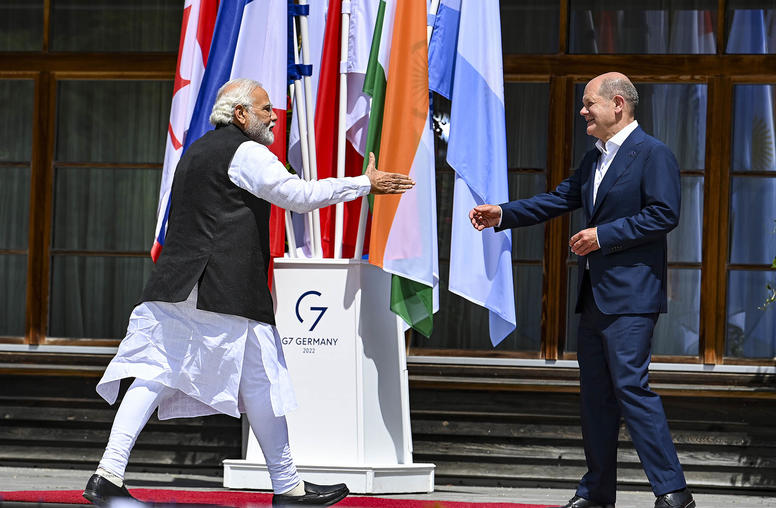
What to Watch in 2023: India’s Pivotal Year on the Global Stage
One month into 2023, and India is well underway with preparations for a pivotal year. In the coming 11 months, India is expected to surpass China as the world’s most populous nation (and by some estimates already has), and to continue on a trajectory of rapid economic growth. In assuming the presidencies of both the G-20 and the Shanghai Cooperation Organization (SCO), India is set to host leaders from across the globe as the country prepares for its own general elections in 2024. With all eyes on India, New Delhi may be increasingly sensitive to global perceptions of how it handles possible shocks — external or internal — ranging from escalation on its borders to incidents of communal violence.
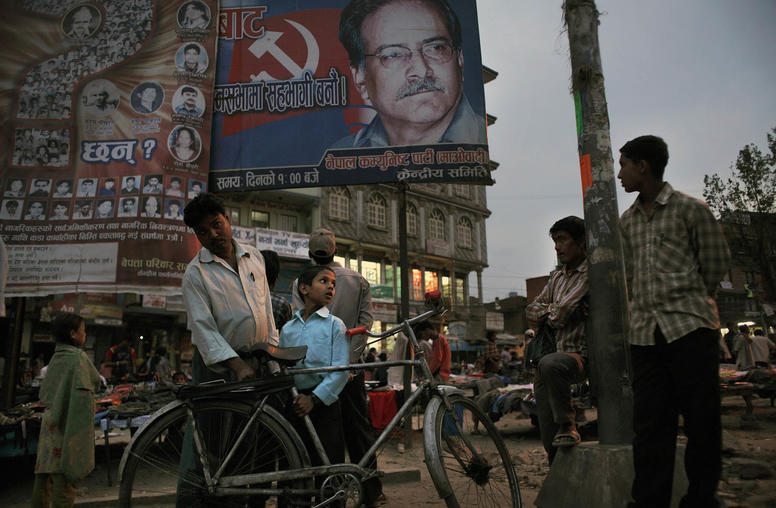
In Nepal, Post-Election Politicking Takes Precedence Over Governance
This past November, Nepalis participated in the second federal and provincial election since its current constitution came into effect in 2015. With 61 percent voter turnout, notably 10 percent lower than the 2017 general elections, the polls featured a strong showing from independent candidates.

After Beijing’s Balloon, What’s Next for U.S.-China Ties?
Days before U.S. Secretary of State Antony Blinken was set to travel to Beijing, the Pentagon announced it had detected a Chinese “surveillance balloon” over Montana. The incident sparked intense speculation about China’s intentions, including why it would choose to employ a relatively low-tech surveillance device. Ultimately, Blinken announced on February 3 that he was postponing his trip, which would have been the first by a U.S. secretary of state in five years. With U.S.-China tensions already simmering, the balloon episode injects more mistrust and scuttled the opportunity presented by Blinken’s trip to resume cooperation on areas of mutual interest and demonstrate that both sides want to better manage bilateral tensions.